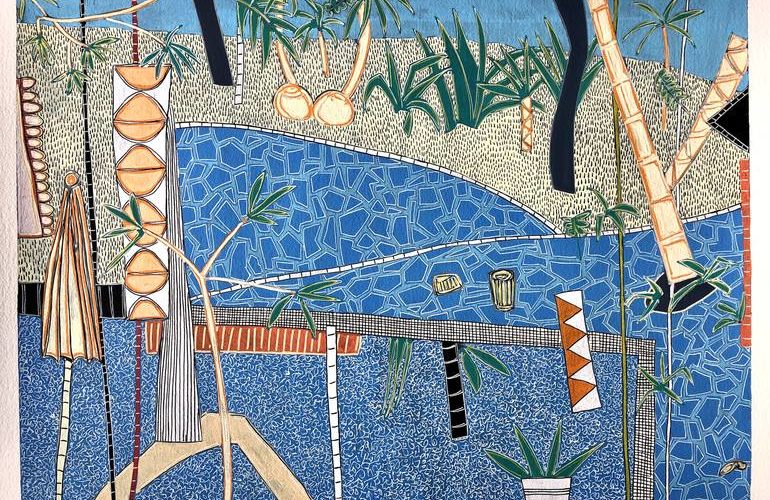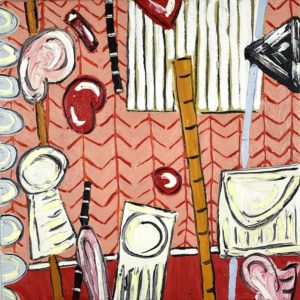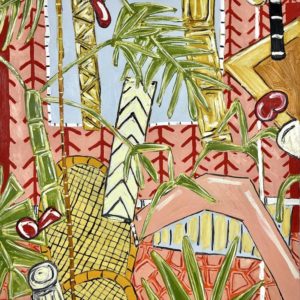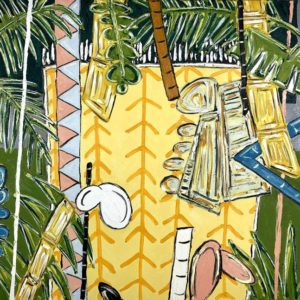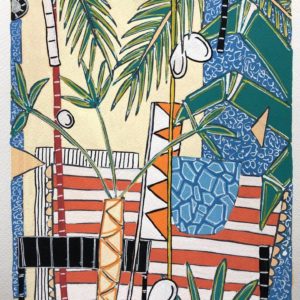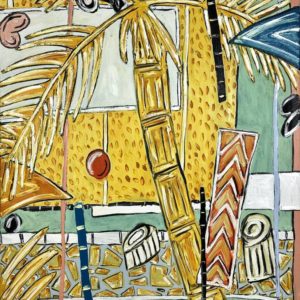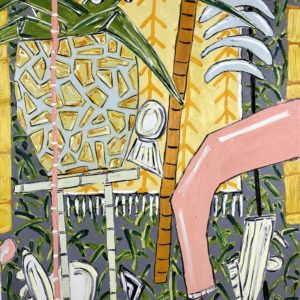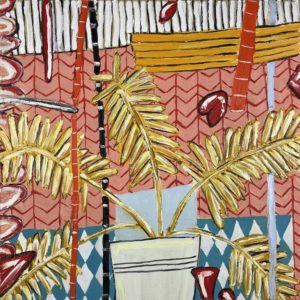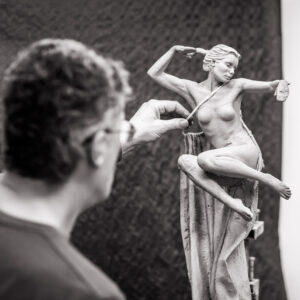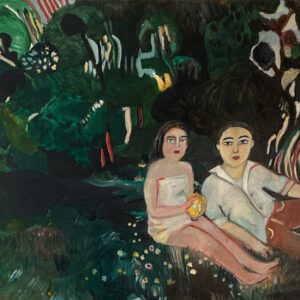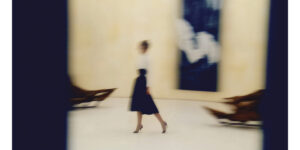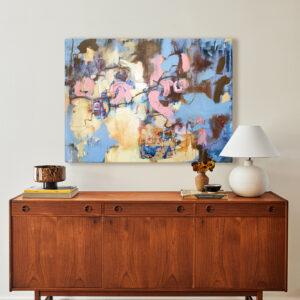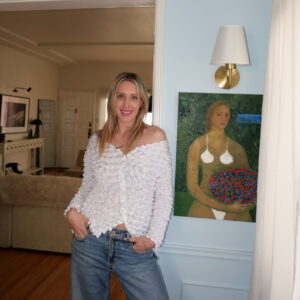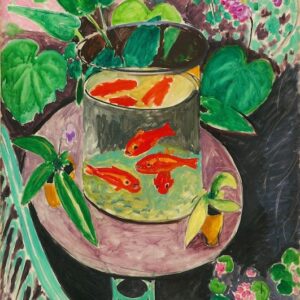Artist Studio
 Inside the Studio: Alec Cumming
Inside the Studio: Alec Cumming
British artist Alec Cumming’s artworks are a million miles away from the stereotypical English environment you may imagine him working in from his studio in Norfolk. Taking inspiration from his international travels to far away tropical places, Alec invokes a celebratory sense of escapism – A sentiment that’s especially craved in 2020.
How did you first get interested in your medium, and what draws you to it specifically?
I work predominantly in oil on canvas and have worked with paint as a medium since college but as time has gone on I’ve discovered how important paint as a medium is to me. I love its buttery rich consistency and its dynamic flow make it a very versatile medium to use. There is something so tactile about oil on canvas. I want people to wander off into my paintings and explore the narratives within them and I think paint as a medium lends itself well to this.
Although it’s not the only medium I use, I first started using Posca pens in 2017. I noticed a friend using them for sign writing and liked the colours and the opacity of them. Then, when I went for a residency in Goa, India, in June 2017 I didn’t take any paint or brushes, just posca pens, and it kicked off from there.
I liked the quality of the ink in the pens and the vibrancy. They are really fluid, so you have this looseness of painting, but because they are a pen there is also a sense of control in them, similar to what you get with drawing. Since then Posca’s have become a staple work for me they are easy to take anywhere and have an immediacy which I like but still portray crisp, strong colours.
Can you walk us through your process? Do you begin with a sketch, or do you just jump in? How long do you spend on one work? How do you know when it is finished?
I spend a lot of time looking, observing and absorbing. I always have drawings and sketches around me but I don’t use them to scale up or necessarily work directly from. I use them more as a dictionary of images, that I can can pick from when I’m making a painting. Its more lyrical than a representation, I feel like I don’t use them as narrative, its more observing them and using them to create a visual sensation.
I usually work straight on to the canvas, shaping and moulding a composition. There is a physicality to my work, a lot of back and forth. As the painting progresses there is a moment when all elements come into focus, one of the tricks is to catch it, at this particular moment when the painting is hanging in balance. It’s not a question of it being finished, but caught at the right moment.
Sometimes I find I work on paintings for weeks, continually revisiting. The process becomes a winding navigation to get to that balanced moment. Other times, the process is more direct where you gather momentum very quickly.
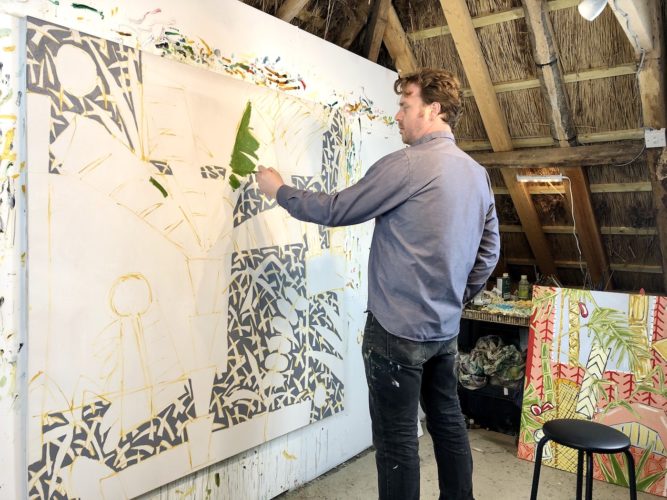
If you couldn’t be an artist then what would you be?
I think I’d find it hard to do anything else, probably I would have to do something that involved being outside with the elements. Maybe a landscape gardener with the ability to immerse myself in interesting foliage and create my own narrative with the plants to create beautiful spaces to be enjoyed.
Any advice for younger artists at the start of their careers?
I think the best piece of advice I can give is to always keep making work and try new things, try everything you can and make work you believe in, even if others don’t. Honesty is really important in creative practice. Keep looking at the world around you and allow it to absorb you. Once I had come to terms with my influences organically filtering into my works, I no longer strained to put them in, I felt there was a new fluency within the language I create on the canvas or paper.
Tell us something about yourself that might surprise people to hear
Before I was lucky enough to do this full time, I worked as a chef. In several restaurants, the two jobs went well together. I enjoyed making food for people, and giving an experience to diners, it felt like doing an edible exhibition!
